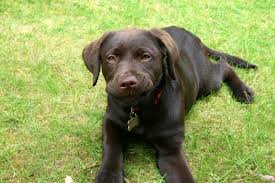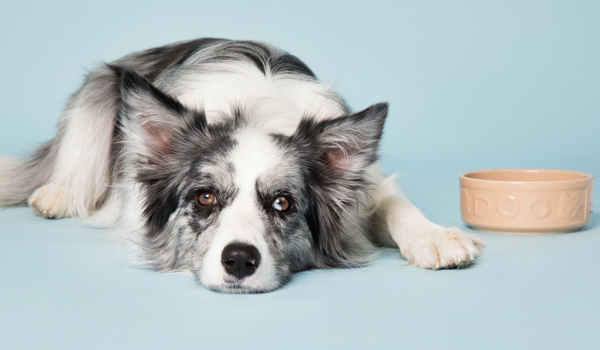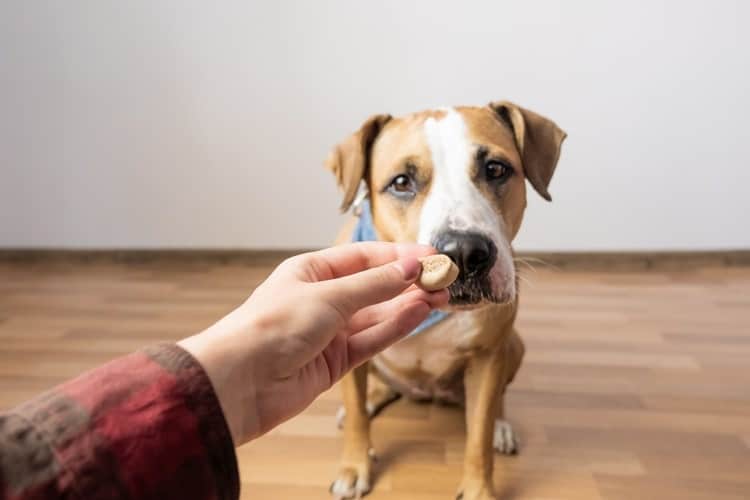So, your dog is in the yard or out on a walk and they pick up and start eating a stick. Should you be worried? A lot of pet owners ignore their dog eating sticks because they presume it will be fine. It is nature, right? Well, the truth is, sticks can be dangerous for your pup and it is best to avoid this from happening. Think about it; would you eat a stick? If you are not convinced that it is harming your pup, we will show you why it is.
Connect with a verified veterinarian in minutes. Licensed vets are available 24/7 to answer your questions. No need to worry about your furry family member.
Let’s take a look at why dogs decide to eat sticks and what you can do to stop this from happening in the future.
Why are Sticks Dangerous for Dogs?
You may be thinking; is there really any harm in letting your furry friend eat a stick? Unfortunately, the answer can be yes. If you are out somewhere exploring in the woods, there are lots of trees that are poisonous to dogs. This includes oak, chestnut and apple trees. Letting your pooch eat the sticks could make them very sick. It could have fatal consequences in some cases.
But sticks can be dangerous for a number of other reasons. Even if the tree is not poisonous, your dog can easily choke on a stick. When they are gnawing, this can cause mouth injuries and break their teeth. If they eat the stick and pieces break off, this can cause intestinal damage and blockage too. All of these incidents are serious and can have a bad ending for your pooch. This is all from just innocently chewing and eating a stick.
Of course, if your dog does have an intestinal blockage, that time playing with a stick will become really expensive, as well as dangerous. In order to save your pooch, you are talking about thousands of dollars for surgery. Is it really worth it? We all know the answer is no and it is best to not let your dog eat anything they come across in the yard or on walks.
Why Do Dogs Eat Sticks?
There are many reasons why your furry friend may be snacking on a stick when you are out and about. Some reasons are obvious while others are not. So, let’s take a look and see if you can figure out why your dog is eating sticks. Then we can work out how to stop it.
They are Puppies
If you have ever had a puppy, you know that they like to gnaw on anything and everything. This happens inside the home and outside on walks and during playtime. From shoes to a sandwich in the kitchen, they will grab anything they can. Of course, this means that sometimes, they will eat things they should avoid. Your pup may be simply eating sticks because he or she is young. They are curious about the world and still learning what everything is. Most puppies will grow out of eating sticks as they get older. But if this continues into adulthood, there may be another reason for this behavior.
They have Anemia
Dogs that resort to eating sticks may not be doing this because they love to chew. Instead, if they have a low level of red blood cells, which is called anemia, they may be eating sticks because of this condition. When dogs are anemic, they can develop pica. This is a condition that can make them eat things that are not food. If you suspect your pooch could have anemia, it is best to see your veterinarian. Other signs of anemia include pale gums, tiredness and depression. When this problem is sorted, they should stop eating sticks.
They have a Nutritional Deficiency
A lot of dog foods simply do not provide pups with all the nutrients they need. It is common for pups to be deficient in certain vitamins and minerals due to bad food choices. When they are lacking these nutrients, they can try to get them by themselves. This includes eating sticks. Some deficiencies make a dog think they are starving, which may mean they eat anything from sticks and rocks to other dog’s feces on walks. This is the last thing that any dog owner wants to deal with, so if you think this is the case, it is time to address their diet. This should hopefully stop them from scavenging when they are out and about.
They have a Digestive Disorder
If your pet has a digestive order that you are not aware of, this can lead to them eating sticks. They can suffer from irritation and this can lead them to eat to try and combat the discomfort. This can happen with problems such as worms, gastritis and inflammatory bowel disease. It can be difficult to know if your furry friend has any of these problems. But if your pooch has increased thirst, depression, lethargy or is vomiting, this could be concerning signs of a digestive disorder. Tell your vet as soon as possible to see if there is treatment is available. This may also stop them from eating sticks.
They have Dental Problems
You may be surprised by this one. If your dog has dental problems that you did not know about, they may be chewing on sticks. They gnaw away on items to try and deal with the pain they may be experiencing. This could be from a cavity or because of gum disease. Of course, this is counterproductive and could be making the situation worse for your pooch. Take a look at your dog’s mouth and see if you can see any problems. If not, take your dog to the vet to have them checked over. They will take a look at their gums and teeth at the same time.
They are Hungry
While it may not seem like the tastiest of snacks, dogs can eat sticks simply because they are hungry. If you are not giving your dog enough food during the day, they may look for other things to eat when they are outside. While dogs have a bad habit of eating anything, they can turn to items that are not food in order to feel better. This may be a sign that it is time to take a look at your canine’s diet.
They are Bored
It is true, dogs can eat sticks because they are bored. They may be in the yard and decide to snack on a stick because there’s nothing else for them to do. This is common in dogs that are left outside for long periods of time and have nothing else to do. Instinctually, dogs like to gnaw and it is possible that they choose to do this with a stick and simply swallow pieces as they are chewing.

Review symptoms, medications & behavior to keep your pets healthy with a Vet Online in just minutes.
Ask a Vet Live NowHow to Stop Your Dog Eating Sticks and Rocks
There are a number of ways you can stop your canine from eating things like sticks and rocks. Hopefully, the list above has helped to decide what may be having an effect on your canine. Even if you have not identified the reason just yet, you can try some of our suggestions to stop them from eating sticks to see if they work.
Tidy the Yard
If there are a lot of sticks and debris lying around your yard, this is giving your dog plenty of opportunities to eat them. So, perhaps it is time to tidy up the yard and clear away any loose debris. Cut back your trees and tidy up bushes. Cut grass so that you can make sure nothing’s lurking in there that can be edible for your pooch. This means that when they spend time in the yard by themselves, you do not have to be constantly watching them and wondering what they are getting up to.
Purchase a Chew Toy
If you think your canine is bored, there is the perfect opportunity to purchase a new toy for them. If they are power chewers, they may rip up a plush toy within minutes. They need something that is going to last and keep them entertained so that they do not turn to sticks and rocks. A chew toy is perfect for giving your dog something safe to gnaw on. There are toys that are flavored, as well as toys you can fill up with food. Find one you think your pooch will love and leave them in the yard for them to play with. Do not forget to spend time with your pup when they are in the yard too. They will get bored without human interaction and sometimes all they want is attention.
If your dog does not like to play on their own, you can always give them a natural treat. For example, pig ears, pizzle sticks and cow hooves are durable treats that your pup can enjoy. They will love to gnaw on them and find them tasty. Plus, since they are natural products, they are good for their health.
Train Your Dog to ‘Leave it’
This next one will take some time. But it will be worth it once your pup learns. Just like you can train your dog to sit, bring you a leash or wait, you can teach your dog to leave sticks. It will take a lot of patience. But it will work eventually if you are consistent.
You may have to use a mixture of negative and positive reinforcement for this one. For example, if your dog picks up a stick, be quick and tell them ‘no’. This might be enough for them to put down the stick and move on. It may take some encouragement. For example, you can use treats as a reward. Ask them to ‘leave’ the stick and if they drop it, give them a treat. Eventually, when they have learned that this is what you want, you will not have to give them treats anymore and just give them praise.
Adjust Their Diet
Perhaps this is a wakeup call when it comes to your dog’s diet. If they are deficient in certain nutrients or they are hungry you can adjust their dinners so they are more balanced and they are getting the right amount of food on a daily basis. We can all get lazy when it comes to our dog’s food. They often get the same thing every day. But they need a variety of different foods to be healthy.
Spend some time researching the desired food you want to buy your pooch. For example, do you want to feed them kibble and dry food? What about wet food? Would you like to join the raw food revolution? These are all options that will require you to read online and find out more about them. There are good arguments for all of these types of foods. It is going to be down to what your pup likes, what you can afford and how you are able to feed them. A vet can always make a recommendation if you want to try to find a balanced food.
Take a Trip to the Vet
If you suspect that something is wrong with your furry friend, it may be time for a trip to the vet. For example, if you suspect they have a digestive disorder or a problem with their teeth, this is something that can be investigated at the vet. Of course, they can offer treatment that can make your pooch feel better, as well as stop them from eating sticks.
There are tests that can be done to see whether your dog is deficient in any nutrients or if they are anemic. The vet should be able to tell you and recommend what to do next. They can provide you with the support you need. Once these issues have been treated, hopefully, your pooch will not be on the hunt for sticks anymore. But if it has become a habit, it looks like you will have to spend time training them.
Connect with a verified veterinarian in minutes. Licensed vets are available 24/7 to answer your questions. No need to worry about your furry family member.

Tom
Tom has always loved to write since he was little - he wanted to be either a writer or a veterinary doctor, but he ended up being a professional writer while most of his works are based on animals. He was born in San Francisco but later moved to Texas to continue his job as a writer. He graduated from the University of San Francisco where he studied biotechnology. He is happily married and a soon to be father!
Review symptoms, medications & behavior to keep your pets healthy with a Vet Online in just minutes.
Ask a Vet Live Now



